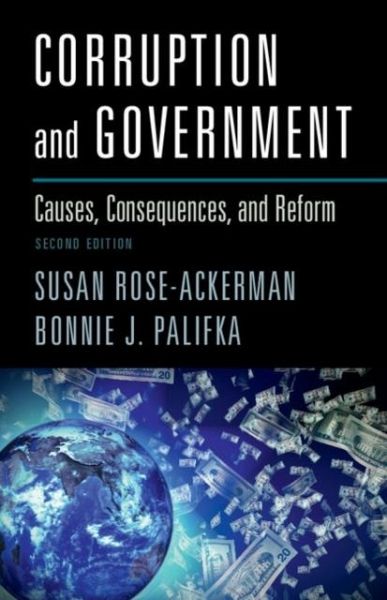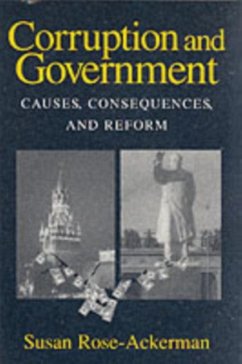
Corruption and Government (eBook, PDF)
Causes, Consequences, and Reform
Versandkostenfrei!
Sofort per Download lieferbar
29,95 €
inkl. MwSt.
Weitere Ausgaben:

PAYBACK Punkte
15 °P sammeln!
The second edition of Corruption and Government updates Susan Rose-Ackerman's 1999 book to address emerging issues and to rethink old questions in light of new data. The book analyzes the research explosion that accompanied the fall of the Berlin Wall, the founding of Transparency International, and the World Bank's decision to give anti-corruption policy a key place on its agenda. Time has vindicated Rose-Ackerman's emphasis on institutional reform as the necessary condition for serious progress. The book deals with routine payoffs and with corruption in contracting and privatization. It give...
The second edition of Corruption and Government updates Susan Rose-Ackerman's 1999 book to address emerging issues and to rethink old questions in light of new data. The book analyzes the research explosion that accompanied the fall of the Berlin Wall, the founding of Transparency International, and the World Bank's decision to give anti-corruption policy a key place on its agenda. Time has vindicated Rose-Ackerman's emphasis on institutional reform as the necessary condition for serious progress. The book deals with routine payoffs and with corruption in contracting and privatization. It gives special attention to political corruption and to instruments of accountability. The authors have expanded the treatment of culture as a source of entrenched corruption and added chapters on criminal law, organized crime, and post-conflict societies. The book outlines domestic conditions for reform and discusses international initiatives - including both explicit anti-corruption policies and efforts to constrain money laundering.
Dieser Download kann aus rechtlichen Gründen nur mit Rechnungsadresse in A, B, BG, CY, CZ, D, DK, EW, E, FIN, F, GR, HR, H, IRL, I, LT, L, LR, M, NL, PL, P, R, S, SLO, SK ausgeliefert werden.













